
Drought and water shortages
Coping with water shortages and restrictions
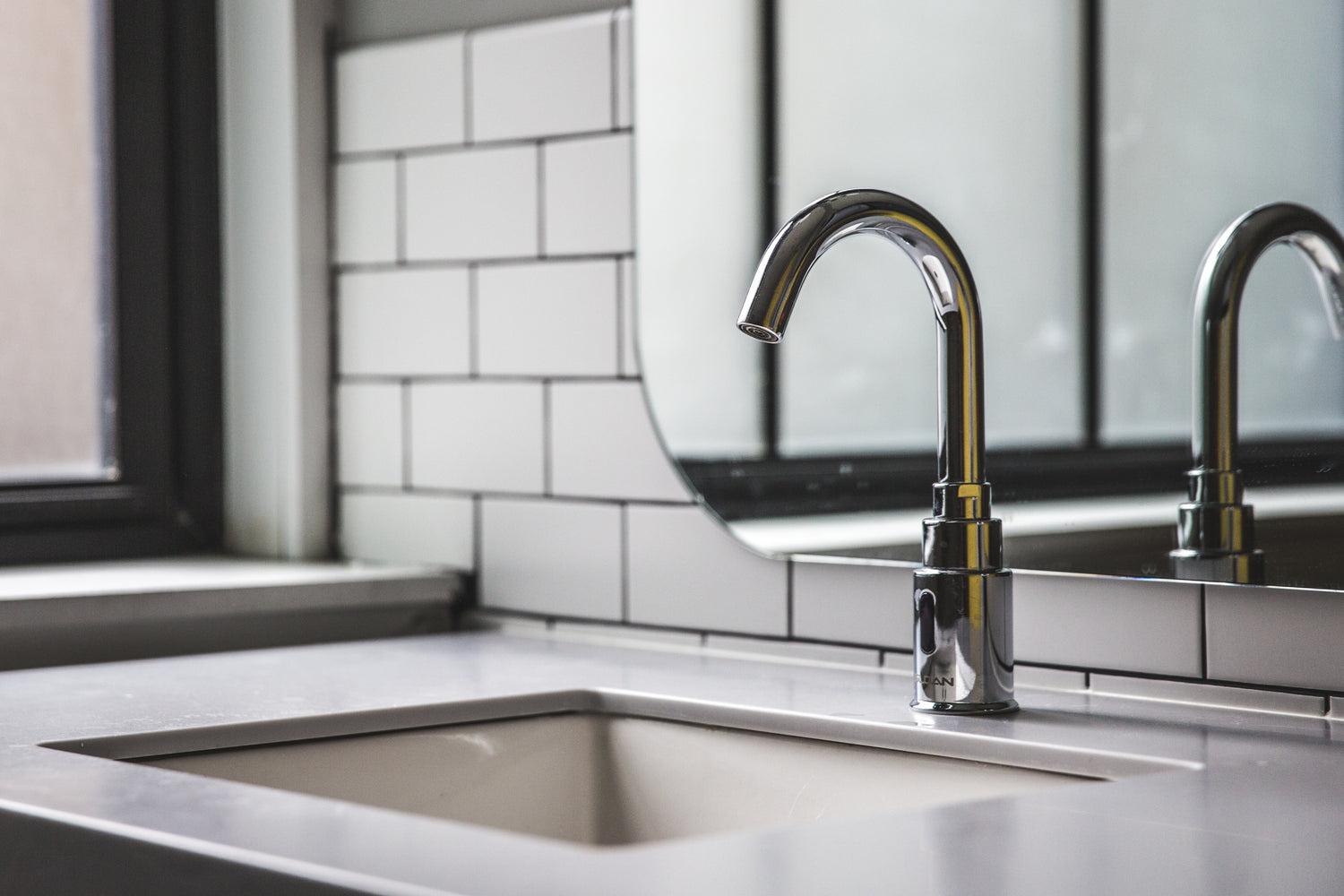
Filtered water even during drought and water shortage restrictions
The subject of water scarcity is bound to be close to your heart.
Water usually flows freely from the tap... And yet... It could run out more and more often.
You're worried when you read in the press about the problems we have to face to get water because of drought and water shortages.
Worse still, more dramatic situations could arise, making access to clean water even more uncertain for all of us.
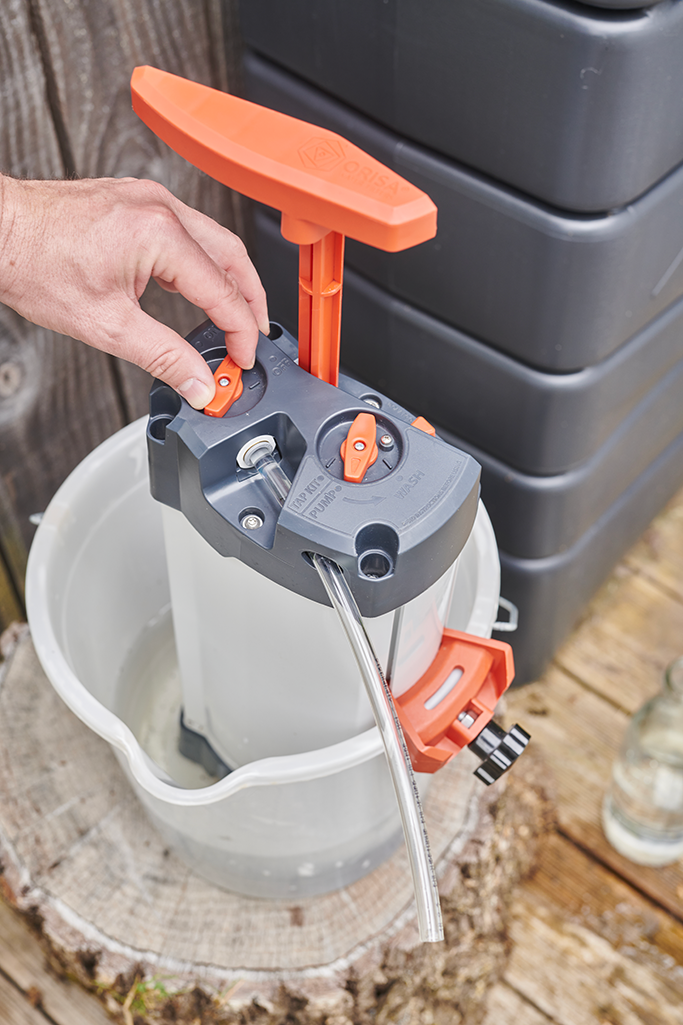
Drought-proof water supply
For decades, environmentalists have been constantly warning of the consequences of climate change. Drought is a phenomenon that severely affects soils and creates highly problematic situations for natural eco-systems. Watercourses dry up, aquatic environments and fauna and flora become unbalanced, but that's not all. Human activity is also largely impacted by this phenomenon. Drinking water supplies are being severely tested to meet the needs of all French people, who are used to a continuous and abundant supply of this blue gold.
The drought is becoming more and more entrenched and is becoming a long-lasting episode. While the summer drought is well known, the winter drought is making the situation even more critical.
So how can we guard against potential water cuts and this inevitable situation of austerity? How will you meet your vital household needs?
Increasingly frequent water shortages?
But what are the practical consequences of this drought?
In 2022, a year of exceptional drought, more than a hundred communes were without drinking water. The pipes were empty. There was no water on tap. Residents were supplied by tankers. It should be noted that this exceptional situation is manageable on a small scale, but as soon as it becomes widespread, it makes the water supply more uncertain for everyone. Water uses are then restricted and prioritised by the government. Health, civil security and drinking water supply establishments are given priority, and the quantity of water per inhabitant is limited. That same summer, 93 départements were subject to water restrictions and 62 were considered to be "in crisis".
So shortages are becoming a reality, and we need to find independent, sustainable solutions.
-

Consequences of drought on soils
-

Crisis situation (red) and water shortage (black) - March 2023
drought map -

Less water resources
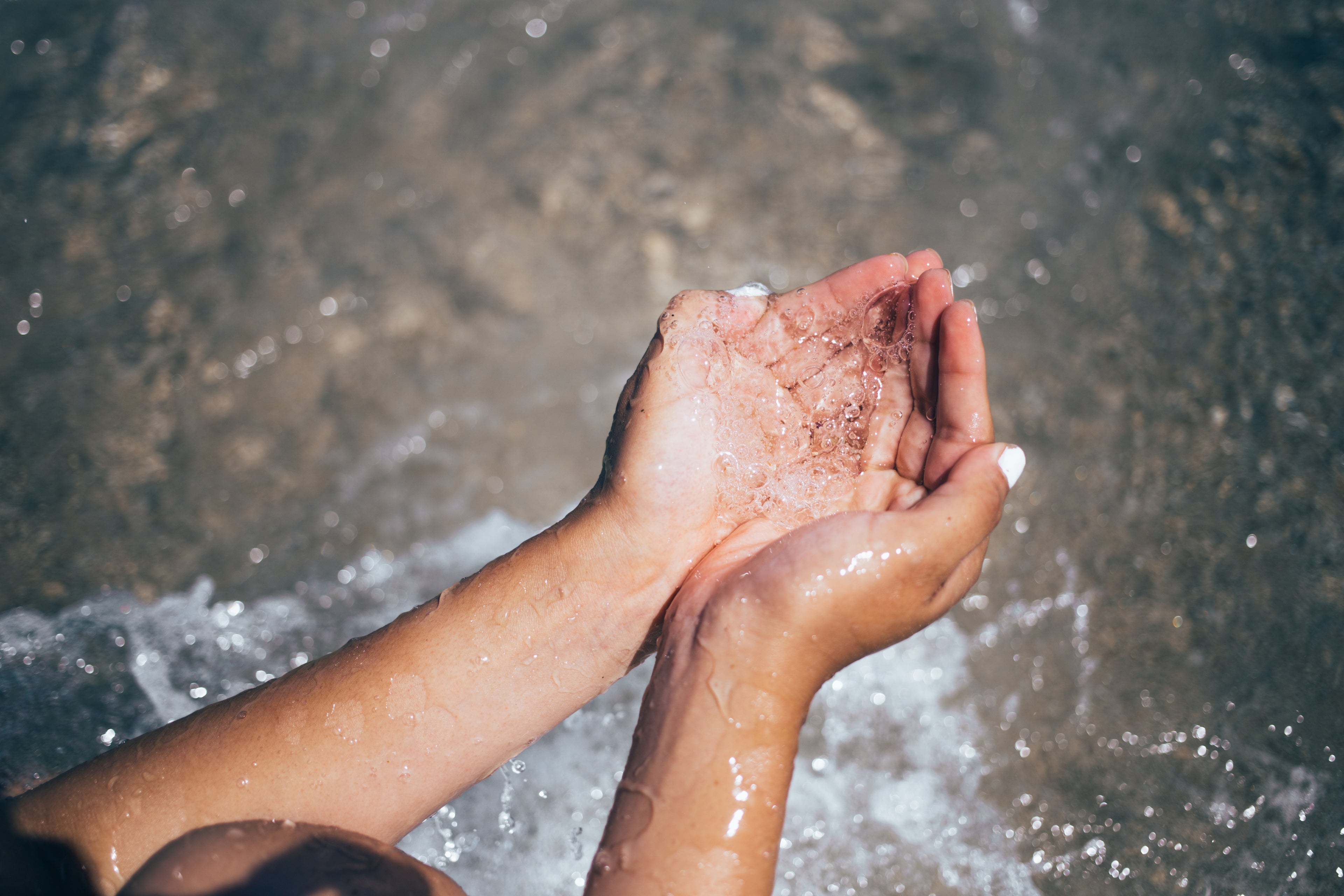
Demand for water will outstrip supply by 40% by 2030, according to the World Bank.
Preventing yourself from water stress
When the demand for water is greater than the quantity available, this phenomenon is known as water stress. Dreaded by the public authorities, this is the situation that has been recurring since 2014, as our summers get hotter and drier. Surface water is dwindling and groundwater is being depleted. However, our demand is not evolving at the same pace. Even though more and more of us are concerned about wasting water, collecting rainwater or limiting its use, these phenomena do not balance each other out. So demand remains higher than the quantity of drinking water available for our human, industrial, agricultural and other needs.
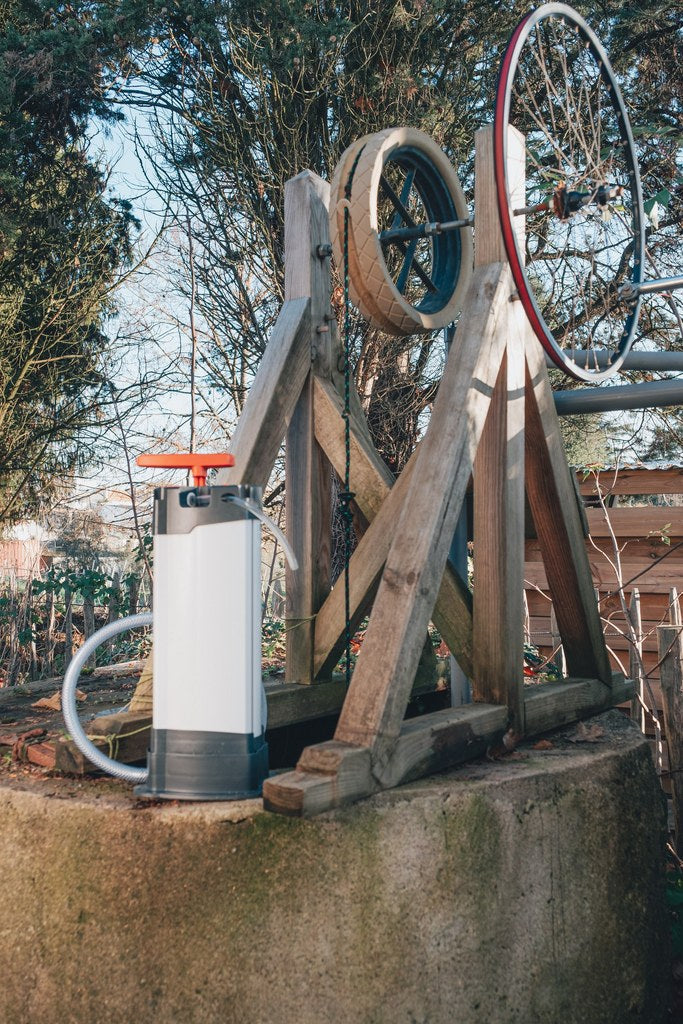
What are the solutions to drought and water shortages?
Faced with the consequences of climate change, water is becoming increasingly precious. That's why it's vital to collect rainwater using a tank, a water collector or a cistern. That way, you'll be more independent in meeting your needs and those of your family: drinking, preparing food and hot drinks, cooking, washing your hands, etc. But having water isn't enough - it has to be purified to protect your health and prevent you from falling ill. Drinking unfiltered water containing pathogens, bacteria or viruses can cause nausea, diarrhoea, abdominal cramps, weight loss, vomiting, chills, headaches or even fever. As specialists in water filtration, we recommend ultrafiltration to filter the collected water. We recommend checking upstream that your water is not contaminated by chemical pollutants by having it analysed in a laboratory. If this is the case, additional treatment (such as activated carbon) is required.
Being independent to purify your water
ORISA® is an individual, self-contained water treatment system that gives you greater independence. With this water purifier made in France, you can meet your needs for a supply of purified water, free from its impurities. Thanks to its water treatment performance, you can make any fresh water healthy and fit for consumption. Filter collected and stored water to remove bacteria, viruses, micro-organisms and parasites such as protozoa, as well as microplastics and other suspended matter larger than 0.01 microns.
-

Preserving the resource
-

Drink healthy water
-

Eating without health risks
A water filter made in France for greater autonomy in the event of drought and water shortages
Our water treatment equipment has been designed to make ORISA® users as self-sufficient as possible in situations of water stress. Durable, simple and repairable, it allows everyone to filter fresh water independently,an essential preventive tool when you're experiencing drought in winter and summer, mild temperatures in winter and intense heatwaves in summer.
- Filter 3 L/min
- Autonomous
- Sustainable
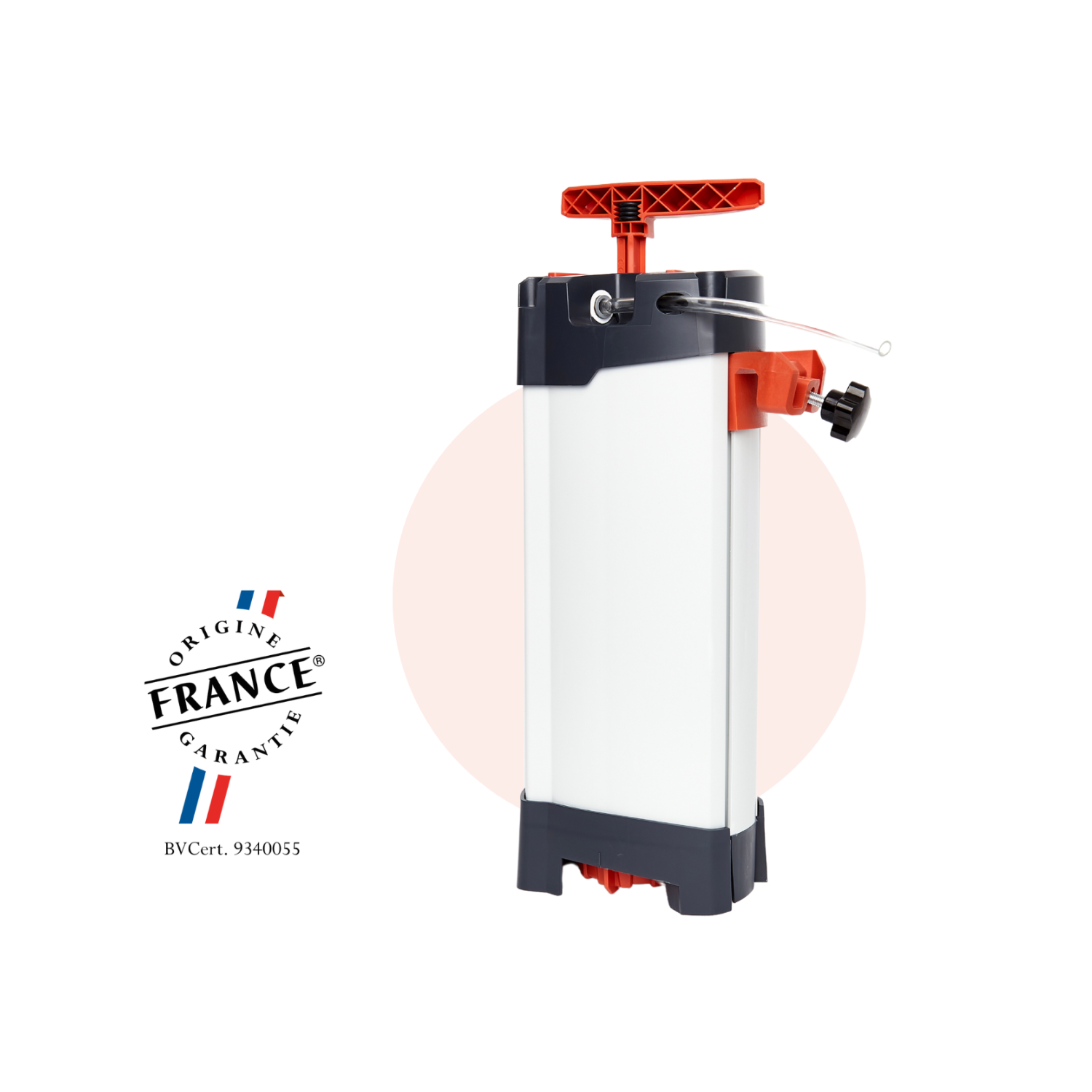
Fonto de vivo
ORISA® water filter made in France
- Without electricity
- Manual pumping
- Instant filtration
- Guaranteed French Origin
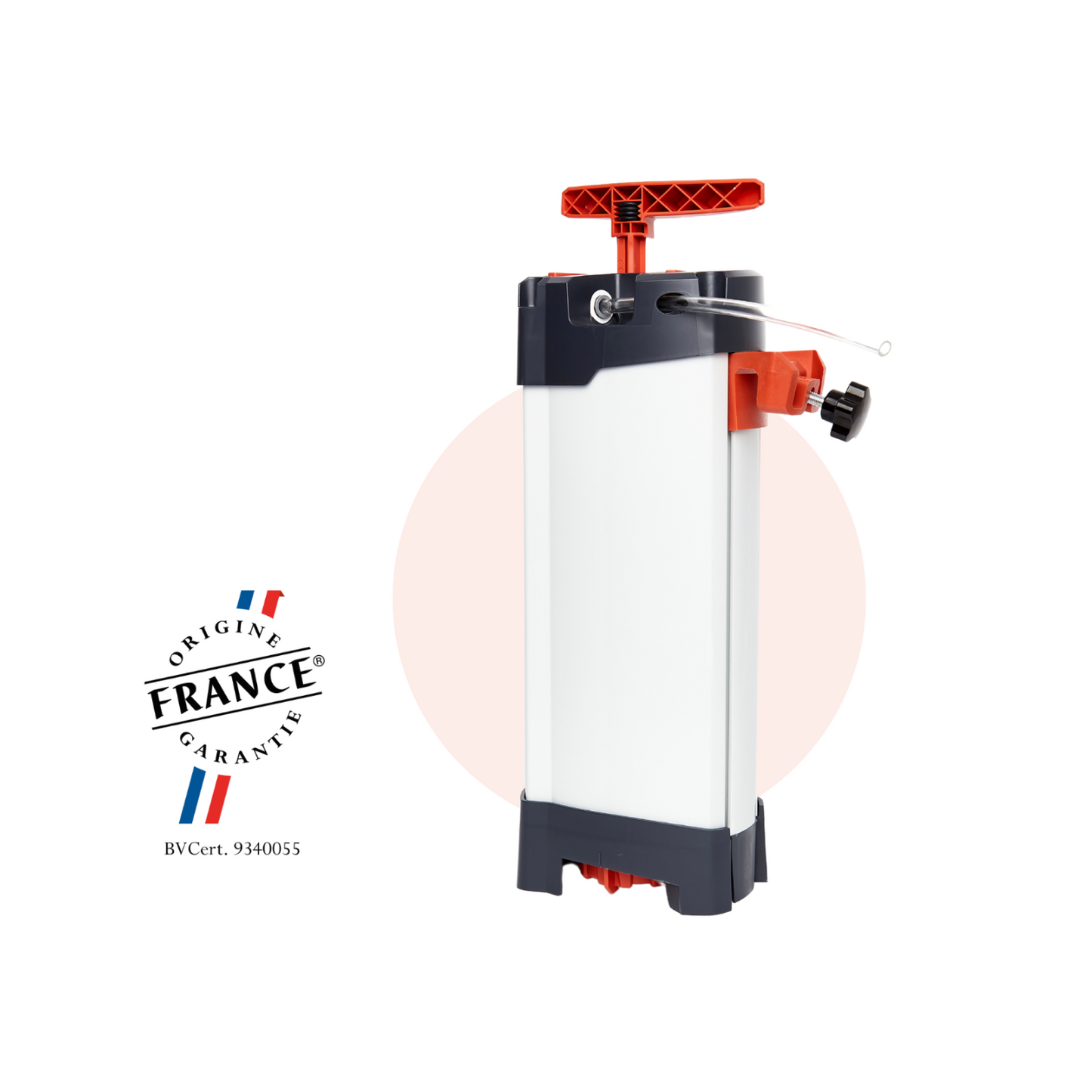
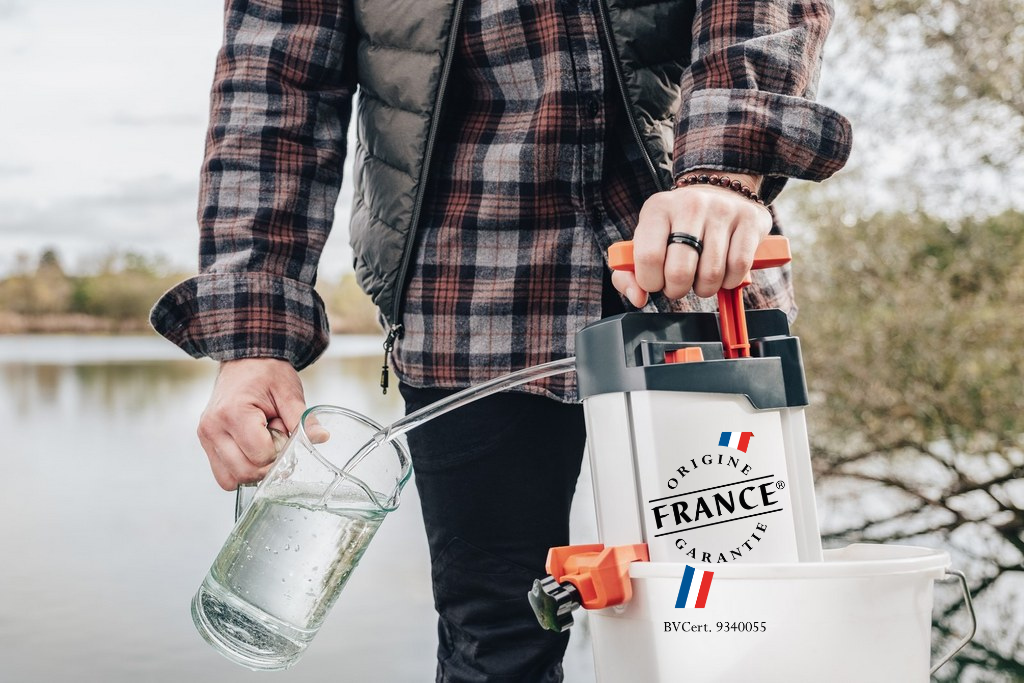
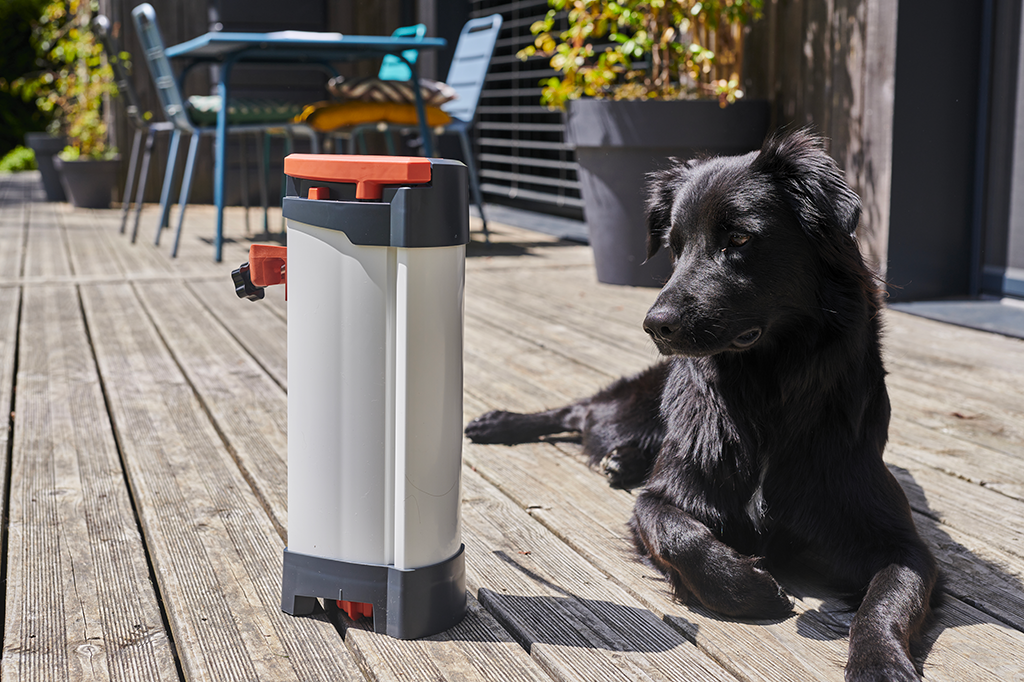
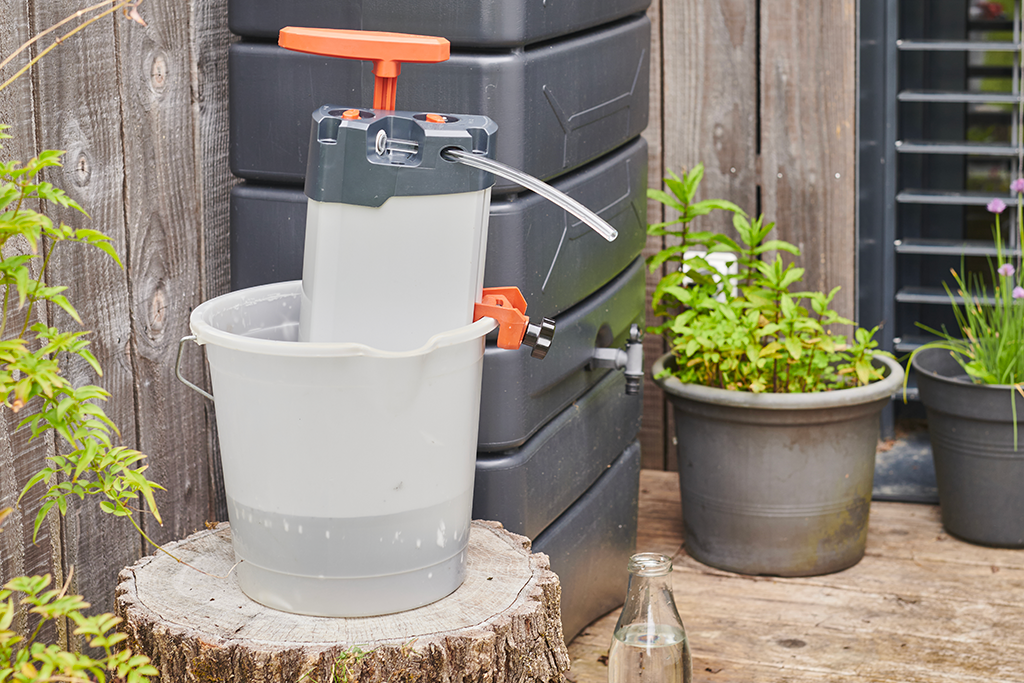



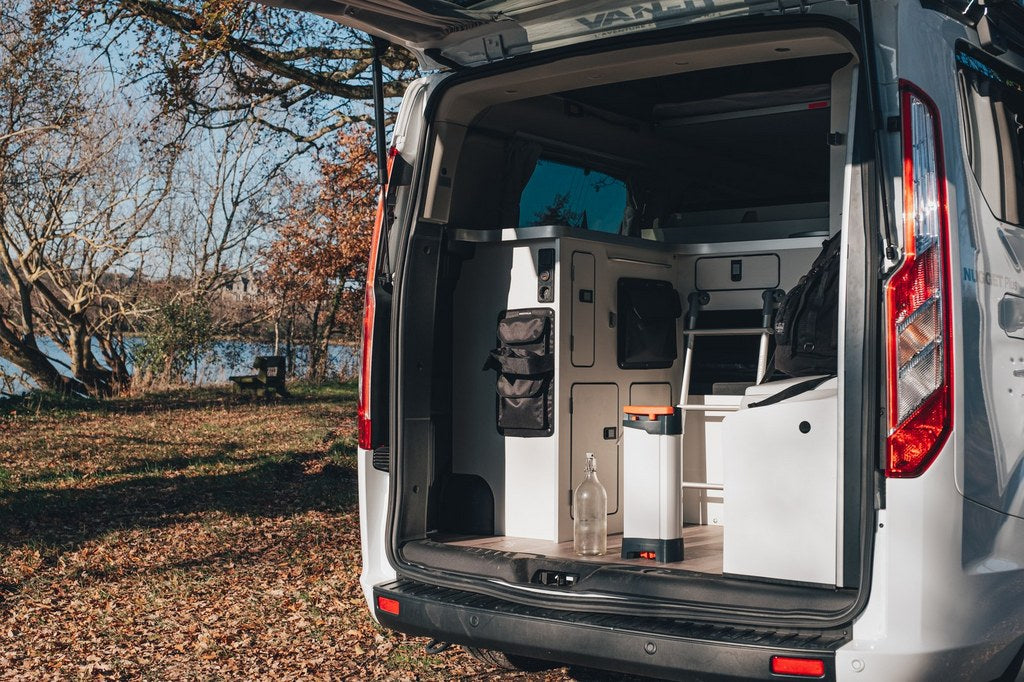
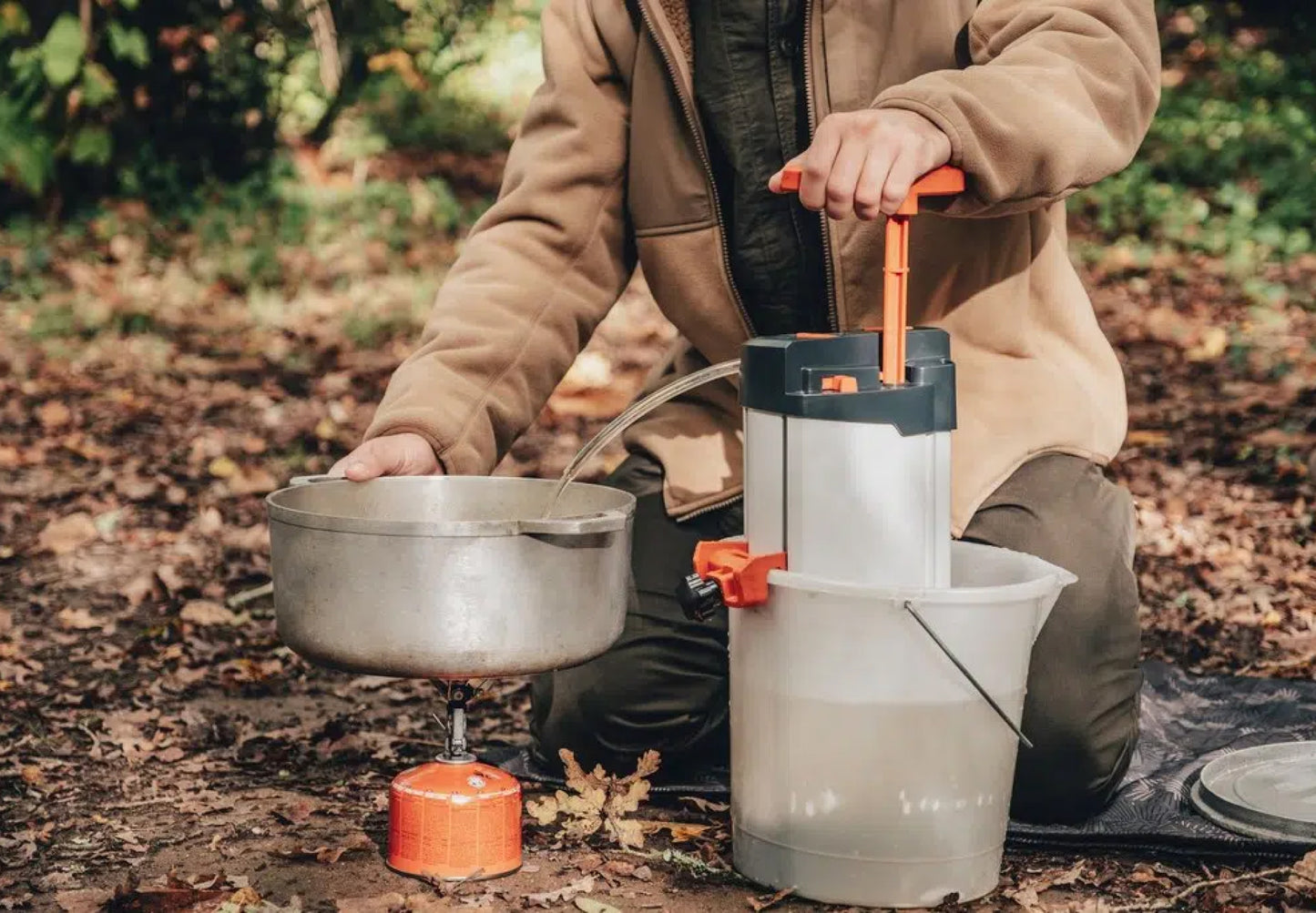
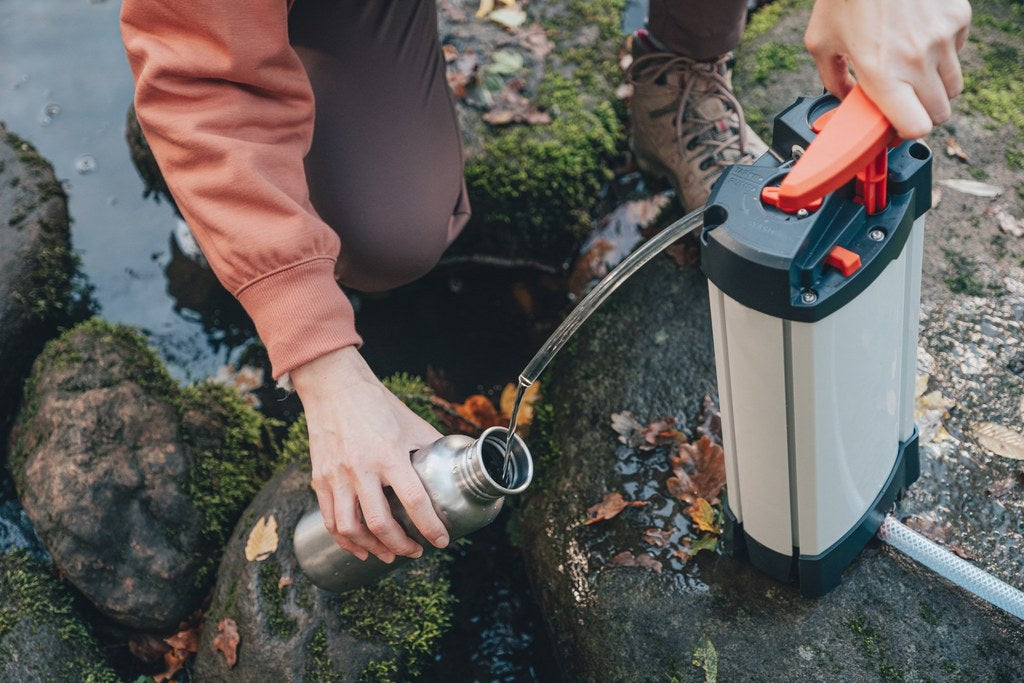
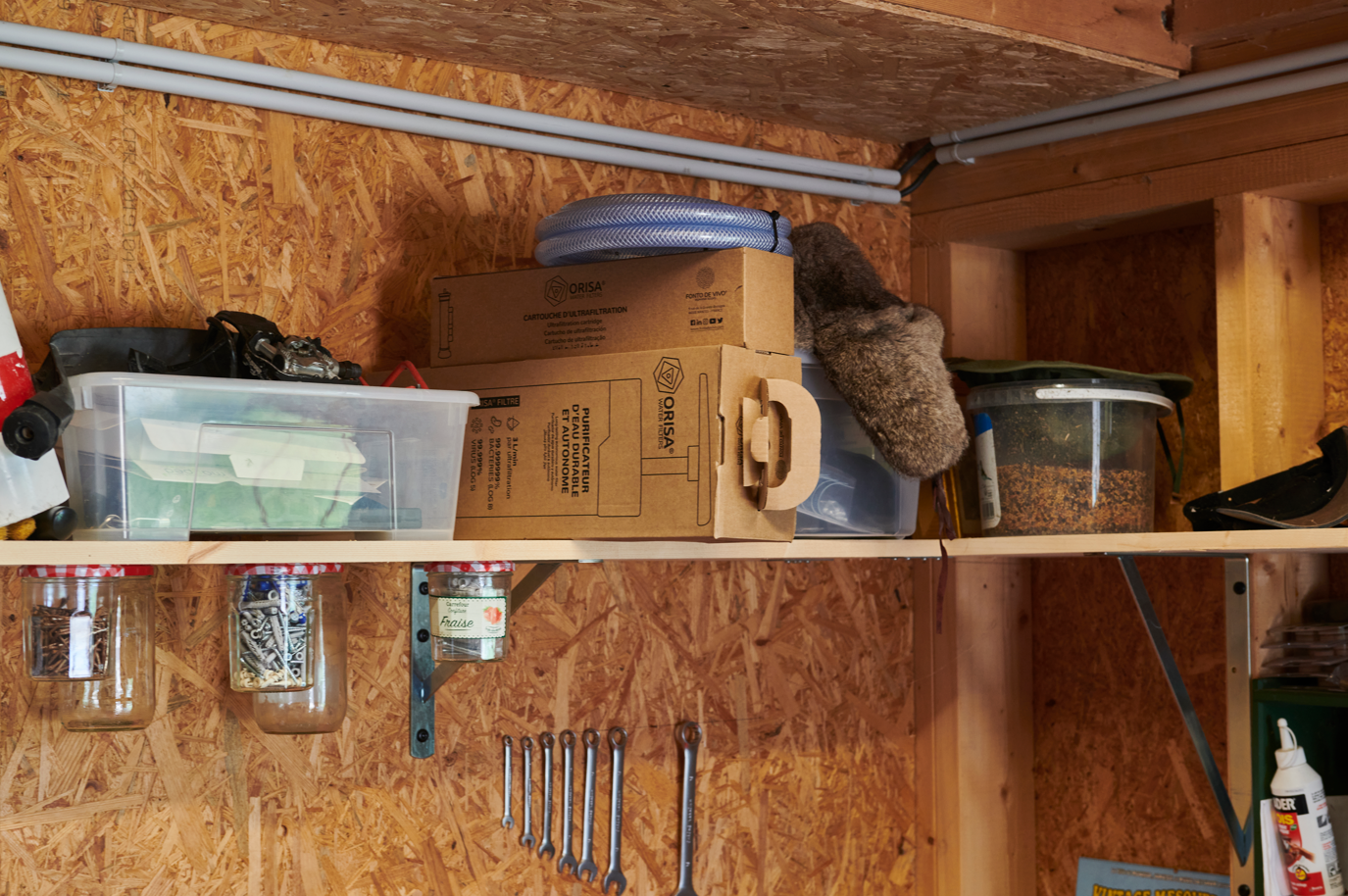
-

SOFT WATER
Filtration of rainwater, surface water (streams, rivers, lakes, ponds) and groundwater (water tables, wells) from microbiological contamination.
-

SECURITY
Filtration of bacteria, viruses, micro-organisms and parasites such as protozoa, as well as microplastics and other suspended matter present in the water to be filtered.
-

ULTRAFILTRATION
Ultrafiltration (UF) membrane manufactured in France and composed of hollow fibres with extremely fine pores (0.01 microns) to mechanically retain impurities in fresh water.








